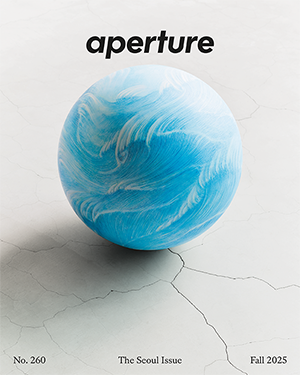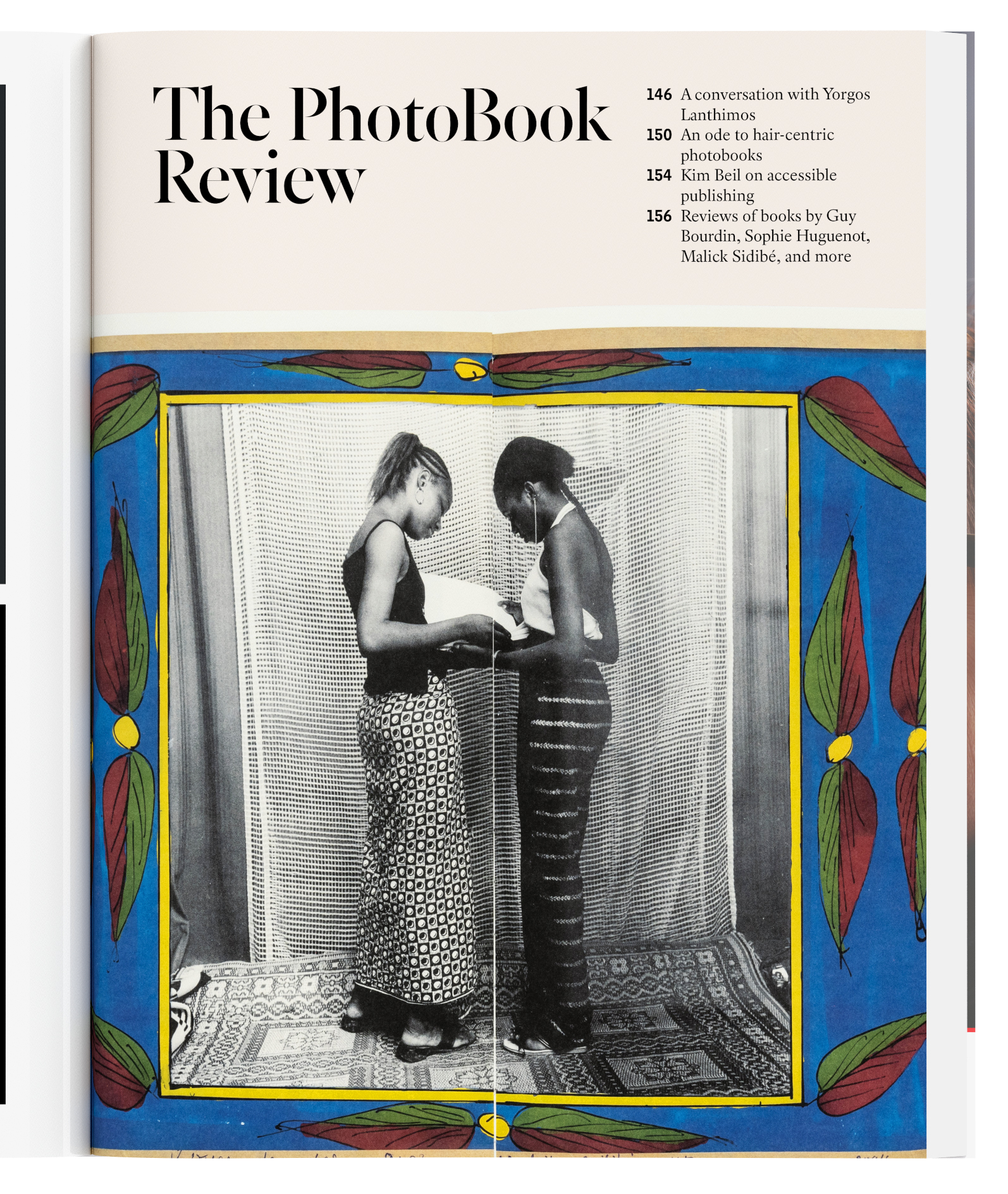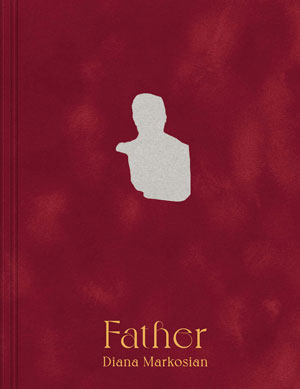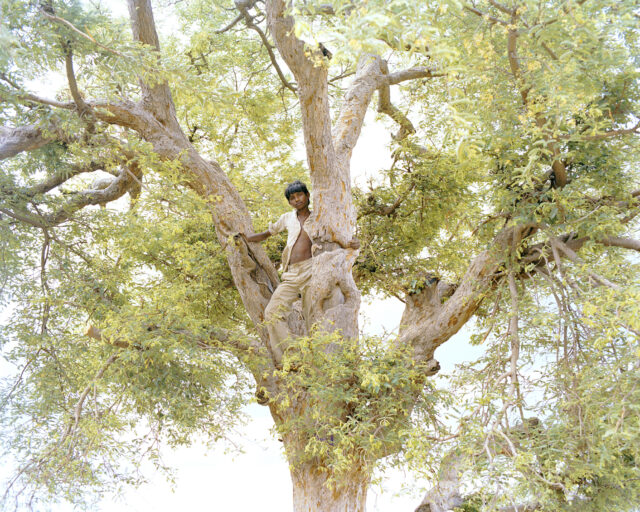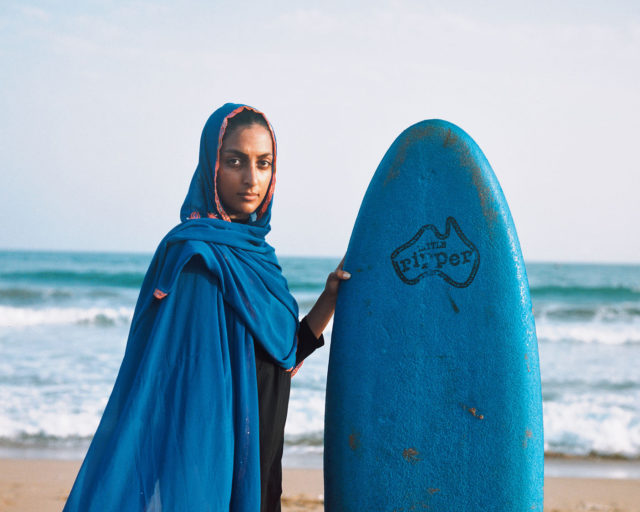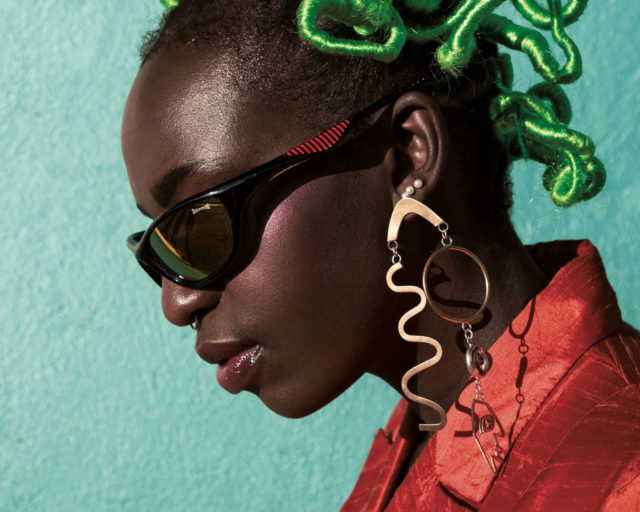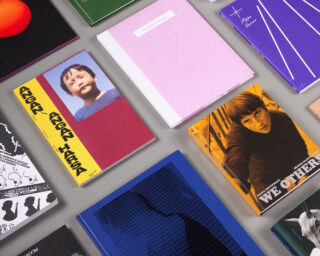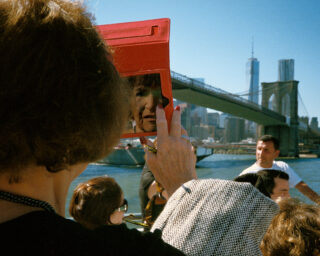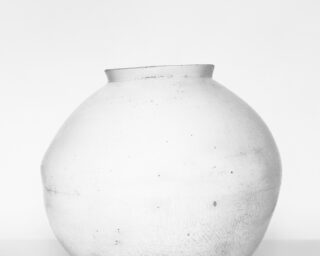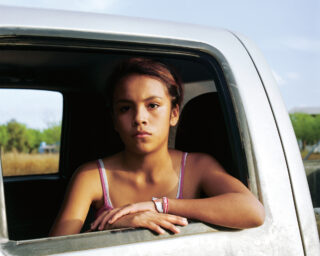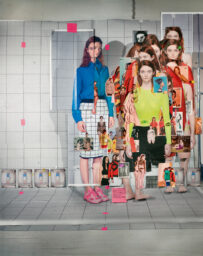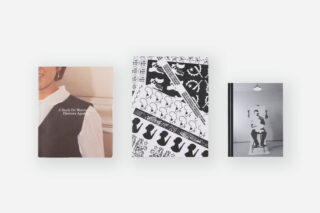At a British Photography Biennial, Glimmers of Optimism
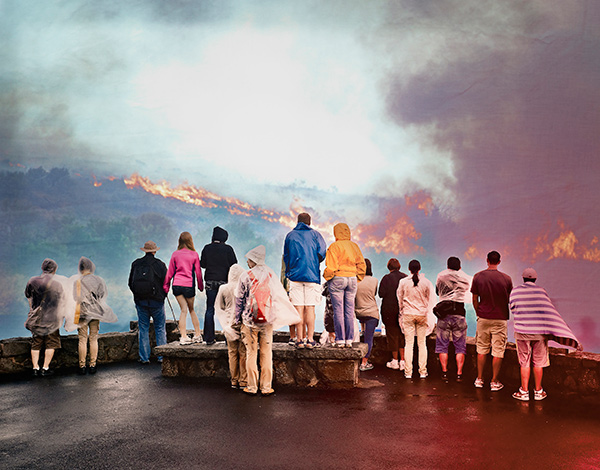
Sadie Wechsler, Eruption, from the series Part 1: Redo, 2013
© the artist
If there is one image that encapsulates how many people in the West feel right now, it might be a dystopic vista in Sadie Wechsler’s series Part 1: Redo. In Eruption (2013), the signature picture for FORMAT, a photography festival presented this spring in Derby, a city in central U.K., a group of people stand watching the world around them burn. A forest is ablaze in the distance. Smoke suffocates the air. The onlookers just stand there, resigned, staring.
At a time when many exhibitions, from the Whitney Biennial in New York to Richard Mosse’s recent installation Incoming at the Barbican feel like urgent protests, it’s unusual to find glimmers of hope in a photography biennial. Wechsler’s work was part of a group exhibition at QUAD Gallery titled Ahead still lies our future, curated by Louise Clements and Hester Keijser. With images like Wechsler’s, and Ester Vonplon’s photographs of melting glaciers, the exhibition described a world at risk, but, inspired by philosopher Hannah Arendt’s 1958 book The Human Condition, it also refreshingly embraced humanity’s ability to change and adapt.
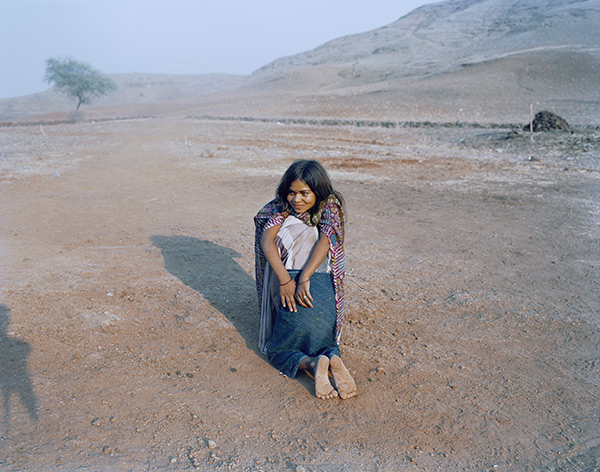
Sohrab Hura, from the series The Song of Sparrows in a Hundred Days of Summer, 2013–ongoing
© the artist/Magnum Photos
Under the festival’s wider theme of “habitat,” Ahead still lies our future focuses on the environment. Ursula Biemann’s film Forest Law (2014) documents how indigenous people of the Ecuadorian Amazon have succeeded in battling mining and oil companies that exploit the rainforest’s resources (In a series of landmark legal cases at the Inter-American Court of Human Rights, the rights of nature were upheld by law.) Lisa Barnard’s roving, interactive digital essay about gold considers the “excrement of the gods,” while Sohrab Hura’s photographic series The Song of Sparrows in a Hundred Days of Summer (2013–ongoing) explores the daily rhythms of life in Barwani, a city in one of the hottest and driest areas of India, but without the resolute despondency one might expect.
It’s particularly surprising to find these notes of nuanced optimism in Derby, which, in last June’s referendum, voted in favor of Brexit. The relatively affluent streets of the city’s center, and in particular the sleek arts complex QUAD—funded partly by European Union in 2008—don’t particularly betray the frustration and deprivation that underscored much of the Leave vote. But, neglected by successive governments after the demise of the coal mining industry in the 1980s, many towns and villages throughout the county of Derbyshire tell a different story: they have high unemployment and very little public transport or investment.
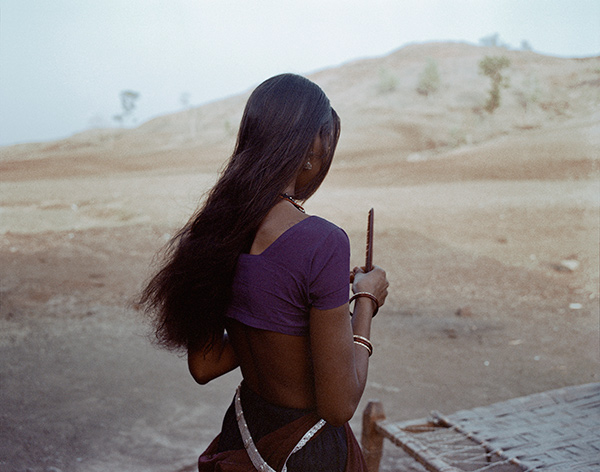
Sohrab Hura, from the series The Song of Sparrows in a Hundred Days of Summer, 2013–ongoing
© the artist/Magnum Photos
FORMAT is the largest photography biennial in the U.K. The 2017 edition brought photographs—including the work of fifty emerging international artists selected from an open call—not only to Derby’s museums but also to all types of venues, including the city’s Cathedral, a castle, and even a pub. British cities that have large, established cultural festivals are generally thriving artistic hubs like Brighton, Manchester, Liverpool, Edinburgh, Glasgow, and, of course, London, all of which are Remain strongholds. As Monica Allende, acting director of FORMAT, told me this spring, the festival highlights the polarization of the cultural landscape. “We have all these mental barriers in this country. It’s very challenging for FORMAT to persuade people from London to come to Derby. It’s not a place people identify as being a ‘cultural city.’” For Allende, this idea of a habitat as a bubble loomed large. “Are we paying attention when we go outside our immediate spaces? Are we taking the time to pause and have a look around and to have a conversation?”
As a curator, Allende’s priority was to bring to light Derby’s forgotten past. Another of the festival’s exhibitions, People, Places, and Things, showcased the archive of one of Britain’s oldest photographic studios, W. W. Winter, set up in Derby 150 years ago. The images offer a glimpse into the lives of people who came to the studio to have their portrait taken, as well as the city’s factory floors, shopwindows, and street parades. While a time machine like this could all too easily slip into nostalgia for Britain’s “glorious” lost past—a nostalgia baldly co-opted by Brexiteers in the racist, anti-immigration elements of the Leave campaign—the exhibition displayed the diversity of Derby’s citizens from the 1960s onward.
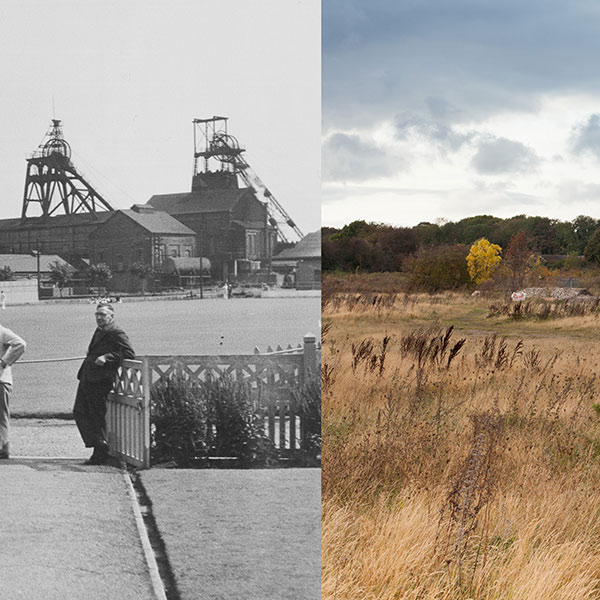
Discipula, from the series STRATA, 2017
© the artists
Flâneur: New Urban Narratives was an open-air installation of photographs by three artists asked to respond to the local East Midlands area. Their photographs were presented in cubes that people could walk around and illustrated both disenfranchisement (Tom Hunter’s somber exploration of ex-mining communities) and hope (Liz Hingley’s focus on their still-thriving brass band culture). This project, like the QUAD Gallery, was partly funded by the EU; its next stop after Derby is Mansfield, a former mining town that recorded one of the highest Leave votes.
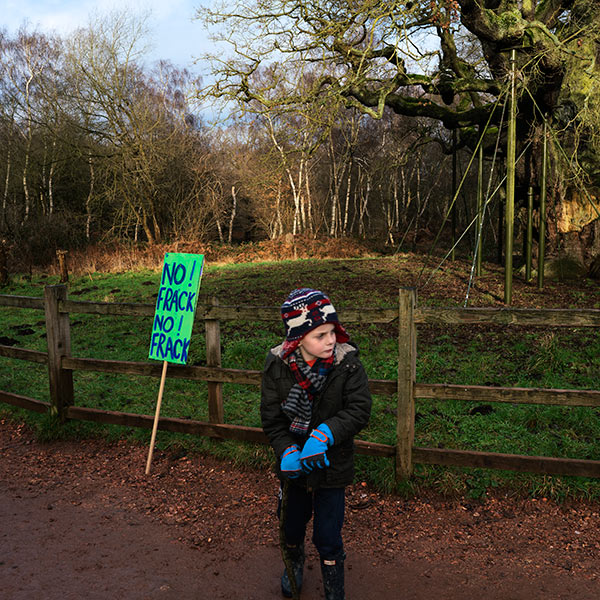
Tom Hunter, from the series Flâneur in the Ancient Landscape, 2017
© the artist
As I left the biennial to return to London, I wondered about the economic fallout from Brexit and its impact on cultural events like FORMAT in places like Derby. One of Allende’s key concerns was to reach beyond the confines of the art and photography worlds, not just by bringing work into the streets and everyday locales. The biennial producers made sure to engage with local businesses, looking beyond traditional outreach arts projects to commissioned bespoke ales from a local brewery with the theme of habitat in mind.
“I want to leave things that are the beginning of the conversation. It was important to create networks of independent and creative people in the city. Five years ago, much of Derby’s city center was boarded up,” Allende said. But what will the next edition of FORMAT look like in two years, when the U.K. has left the EU? Whether the U.K. government will pick up the funding shortfall from the EU is one of the questions on many people’s minds—and not just concerning arts funding. Despite the message of hope that the festival brings, Allende is wary about being too optimistic. “We don’t know what the future will hold,” she said, “but it’s likely that the people of Derbyshire will be some of the first to suffer.”
FORMAT Festival was presented in Derby, U.K., from March 23–April 23, 2017.
